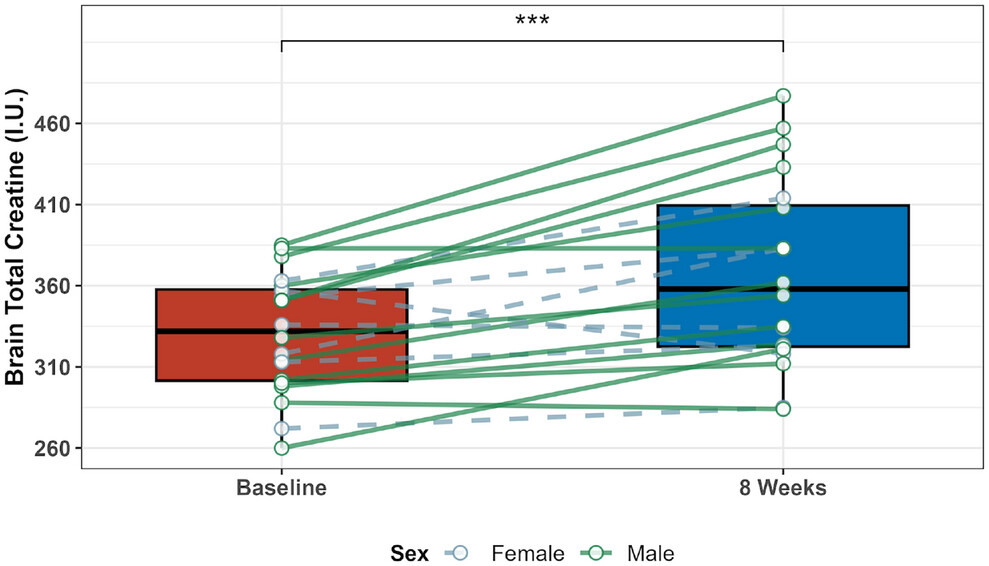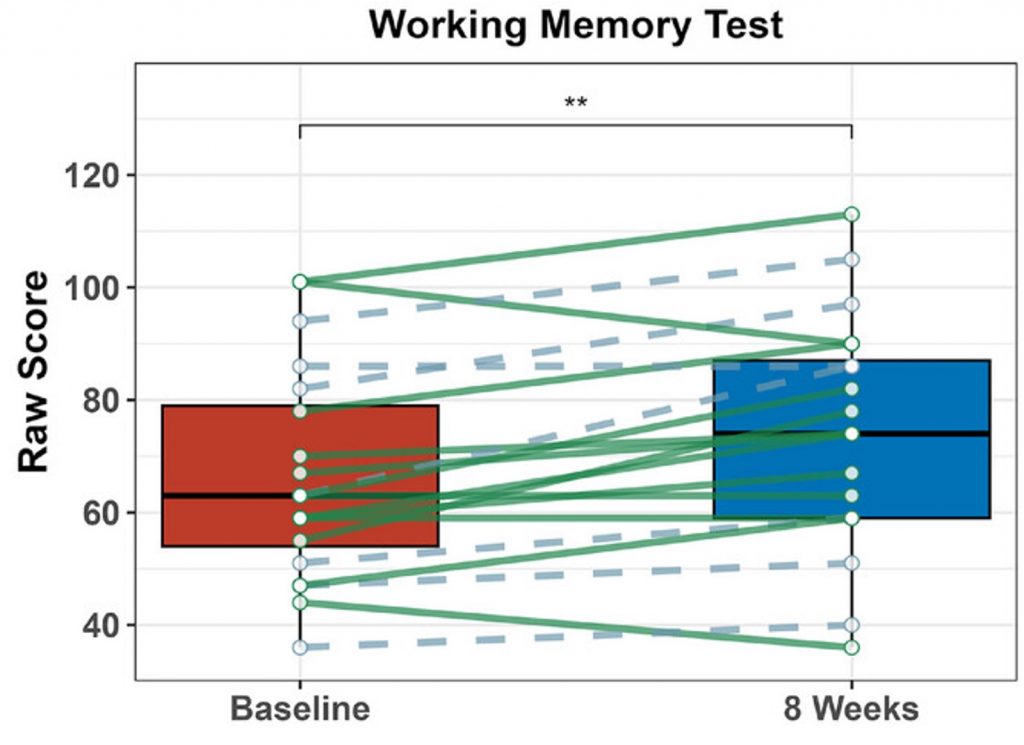Key Points:
- Creatine supplementation improves measures of brain function, including working memory, fluid intelligence, reading ability, and attention.
- Creatine is safe and well-tolerated in Alzheimer’s patients.
When most people hear “creatine,” they think of bodybuilders and athletes looking to enhance their performance. This naturally occurring compound has been a staple in fitness communities for decades, primarily known for improving muscle strength and exercise capacity. But what if this same supplement could help power something even more important—our brain cells? Scientists at the University of Kansas Medical Center recently conducted the first clinical trial investigating creatine monohydrate supplementation in people with Alzheimer’s disease (AD), with encouraging results.
Creatine Increases in the Brain
AD has long been associated with the accumulation of abnormal proteins, such as amyloid beta and tau, in the brain. However, researchers are increasingly recognizing that impaired energy metabolism—essentially, how brain cells produce and use energy—may be a key factor in the disease’s development and progression. Thus, creatine, which functions as a quick-access energy reserve, helps cells maintain their energy levels and may provide therapeutic benefits to AD patients.
To test this, the research team recruited 20 participants between 60 and 90 years old with AD. For eight weeks, participants took 20 grams of creatine monohydrate daily. The treatment proved highly feasible, as 19 of the 20 participants completed the full eight-week program with excellent compliance. More importantly, brain scans confirmed that the supplement reached its target. There was an 11% increase in total creatine levels in participants’ brains after eight weeks.

Creatine Improves Cognition
The most exciting findings came from cognitive testing. Participants showed significant improvements in several important areas of brain function. Working memory, the ability to hold and manipulate information in the mind over short periods of time, was improved by about 10%. Fluid intelligence, the ability to reason and problem solve independently of prior knowledge, was also improved, while crystallized intelligence (acquired knowledge) did not decline.

Additionally, the ability to read out loud was improved by 5%. Certain executive functions, namely the ability to focus one’s attention and to suppress actions that are inappropriate in a given context (response inhibition), trended towards improvement. Overall cognitive performance, measured by composite scores, showed meaningful gains. While these improvements might seem modest, they represent a significant achievement in a disease that typically shows steady decline. Even stabilizing cognitive function, let alone improving it, is considered a success in AD treatment.
Creatine is Safe for AD Patients
Safety is always a primary concern with any intervention, especially for vulnerable populations. Encouragingly, the creatine supplement was well-tolerated by most participants. A few experienced mild side effects, including cramping, diarrhea, constipation, nausea, facial flushing, and sleep disturbances. This safety profile is particularly important because creatine is affordable, widely available, and doesn’t require a prescription, potentially making it accessible to millions of patients if larger studies confirm these preliminary findings.
Creatine as Part of Multitarget Intervention
While the results are promising, it should be emphasized that this was a small pilot study without a placebo control group. This leaves the possibility that improvements were due to placebo effects or other factors unrelated to the creatine itself. Future studies will need to include more participants, compare creatine to placebo treatments, extend over longer periods, and potentially explore different dosages to determine the optimal approach.
With that being said, Alzheimer’s is an incredibly complex disease that probably requires multiple interventions targeting different aspects of its pathology. Creatine might help address the energy deficit, while other treatments target protein accumulation, inflammation, or other factors. This multi-targeted approach mirrors proposed strategies for other complex conditions like heart disease, where combinations of treatments may prove more effective than single interventions.
As research continues, the humble creatine supplement, long associated with gym enthusiasts, might find a new purpose: helping to preserve the cognitive abilities of those facing one of medicine’s most challenging conditions. In the meantime, anyone considering creatine supplementation for Alzheimer’s should consult with their healthcare provider, as individual health conditions may affect its appropriateness and potential interactions with other medications.